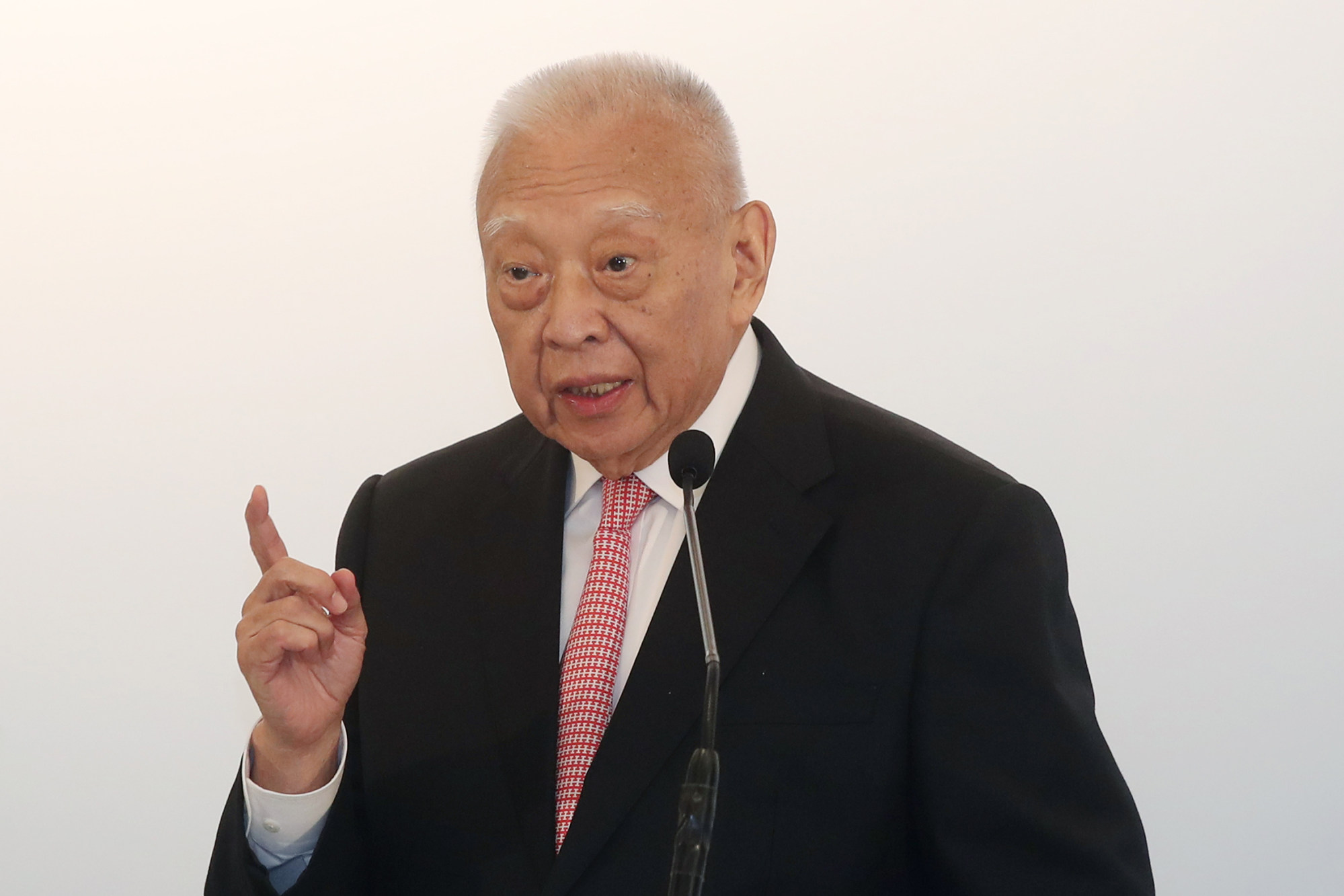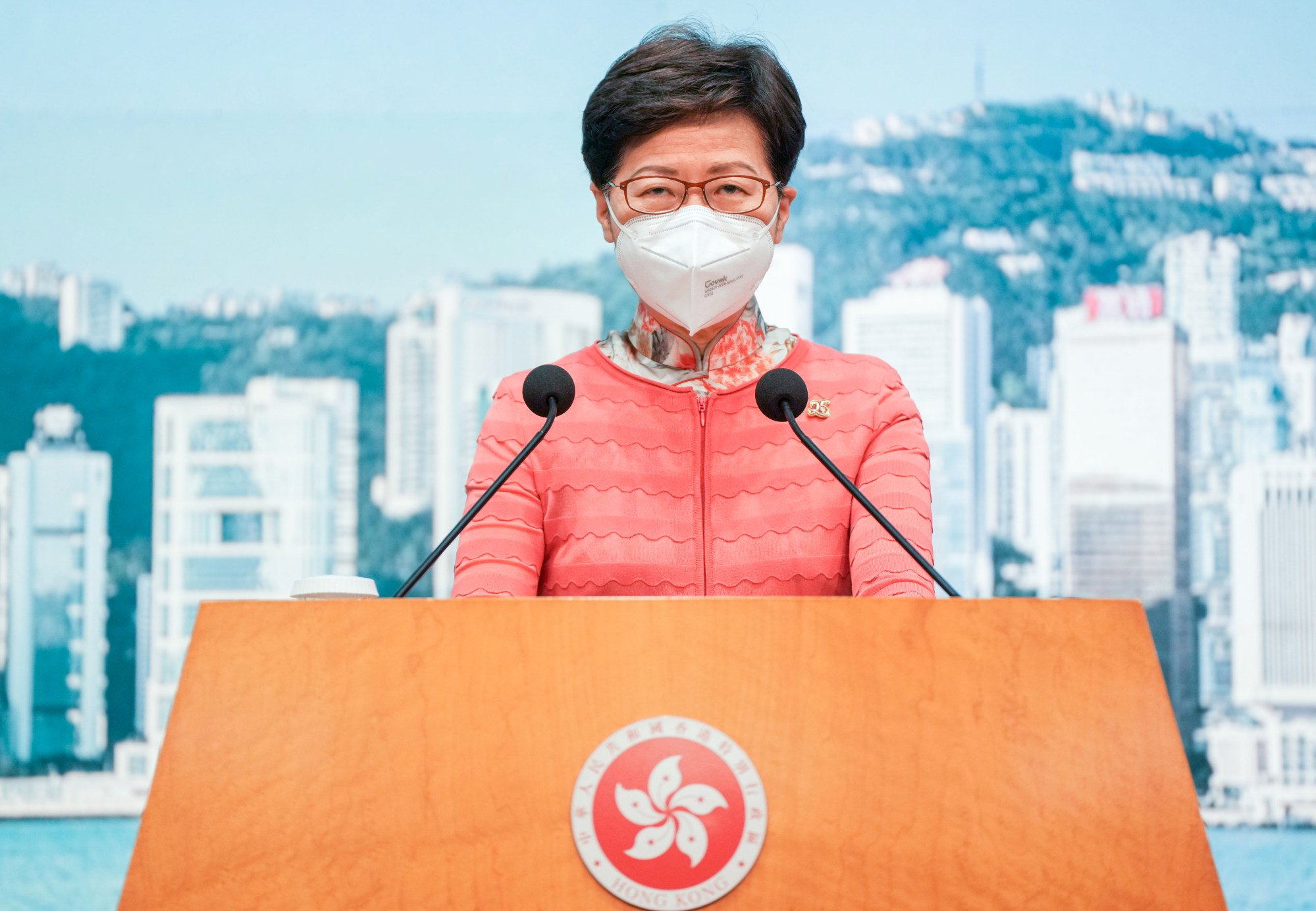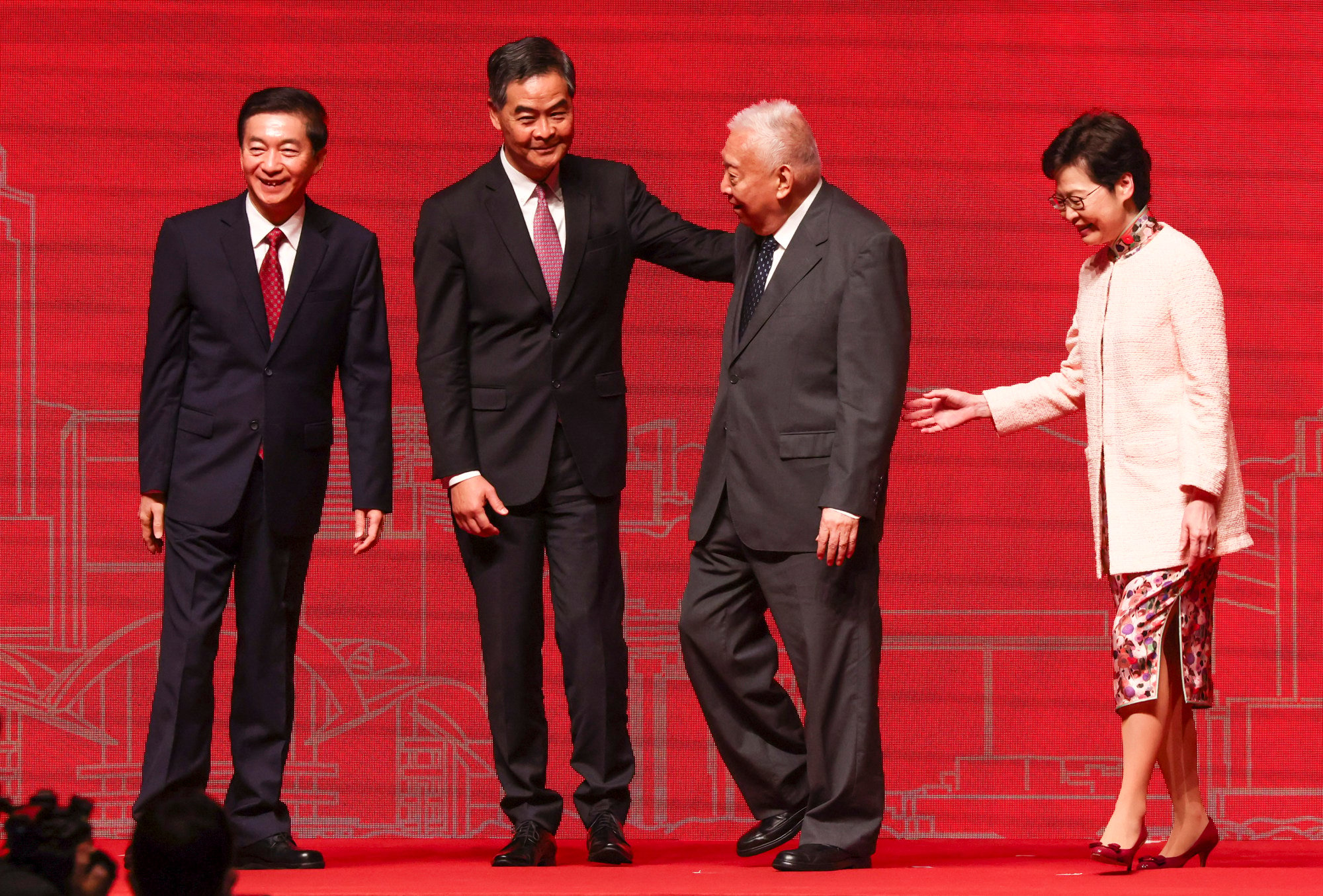
Ex-Hong Kong leader Tung Chee-hwa to step down from China’s top political advisory body as vice-chairman, but no seat for Carrie Lam
- Former chief executive Carrie Lam will not take up Tung’s seat, contrary to earlier speculation by the pro-establishment camp
- Ex-home affairs chief Lau Kong-wah and Alan Lau, who previously served as deputy police commissioner, among new members joining body
Hong Kong’s first post-handover leader, Tung Chee-hwa, 85, will step down from China’s top political advisory body as a vice-chairman – but former chief executive Carrie Lam Cheng Yuet-ngor will not take up his seat, contrary to earlier speculation by the pro-establishment camp.
Tycoons Adrian Cheng Chi-kong, a third-generation scion of the family that controls New World Development, and Shun Tak Holdings chairwoman Pansy Ho Chiu-king, daughter of late “King of Gambling” Stanley Ho Hung-sun, have also been appointed to the body.

Marking one of the biggest reshuffles in recent years for Hong Kong delegates to the top advisory body, the new line-up was approved at a standing committee session that ended on Tuesday.
The representatives will be among thousands attending the country’s annual political gathering, with the first session of the 14th CPPCC national committee set to commence on March 4.
Ex-leader Donald Tsang Yam-kuen, who was once jailed for criminal misconduct but later acquitted by the city’s top court, was previously the only former chief executive not appointed as a CPPCC vice-chairman.
Former Macau chief executive Edmund Ho Hau-wah is also a vice-chairman.
Tung has served as a vice-chairman since 2005 after stepping down as the city’s chief executive. His last public appearance was in July 2021 when he attended a film premiere to mark the 100th anniversary of the founding of the Communist Party of China.

The CPPCC comprises more than 2,100 delegates from around the country, including about 200 from Hong Kong. Many are from the group of “specially invited figures from Hong Kong” – one of 34 groups on the CPPCC national committee.
Fewer than half of the 18 incumbent Hong Kong members on the advisory body’s standing committee remain.
They include property tycoon Victor Li Tzar-kuoi, 58, who starts his fifth term, ex-chief secretary Henry Tang Ying-yen, 70, and former World Health Organization director general Margaret Chan Fung Fu-chun, 75.
The usual retirement age in mainland politics is 68.
Henderson Land Development chairman Peter Lee Ka-kit, Business and Professionals Alliance council chairman Peter Lam Kin-ngok, Chinese General Chamber of Commerce chairman Jonathan Choi Koon-shum and Hong Kong Volunteers Federation chairman Tam Kam-kau will remain on the national committee.
Those taking up the role of deputy chairs of the body’s special committee are Chinese Manufacturers’ Association permanent honorary president Irons Sze Wing-wai, Kowloon Federation of Associations president Connie Wong Wai-ching and Hong Kong Examinations and Assessment Authority chairman Samuel Yung Wing-ki.
The city’s largest party, the Democratic Alliance for the Betterment and Progress of Hong Kong (DAB), had more than 20 representatives in the CPPCC and National People’s Congress (NPC), the country’s top legislature. DAB chairwoman Starry Lee Wai-king revealed to the Post offices were being set up for them to connect with residents.
“We hope to better tap into the pulse of the people by taking complaints and resolving their livelihood issues,” said Lee, who remains on the advisory body.

On Carrie Lam’s absence in the latest appointments, political analyst Lau Siu-kai said it was “never a rule” for Hong Kong to take up two vice-chairman posts in the CPPCC, and it was also impossible to let all former chief executives take up the reins.
“The central government must consider political needs, and the contributions that relevant people can make to the country,” he said.
Political heavyweight Tam Yiu-chung, the new vice-president of semi-official Beijing think tank the Chinese Association of Hong Kong and Macau Studies, agreed, saying it was not a “must” that former chief executives be promoted to the CPPCC role.
“For Mr Tung, I think it’s more about his old age and that he has difficulty moving around,” he said.
Lawmaker Johnny Ng Kit-chong said that in his second term as a CPPCC member he would focus on ways to better utilise Hong Kong’s internationalism to advance the country’s development as Covid-related travel restrictions were lifted.
“Recently, I already received two officials from Guangdong who were eager to explore ways in helping mainland businesses to attract foreign investment. Hong Kong’s role as a bridge will only become more important,” he said.
Separately, Luo Huining, former director of Beijing’s liaison office in the city, and his successor Zheng Yanxiong as well as Song Zhe, retired deputy director of the State Council’s Hong Kong and Macau Affairs Office, were elected as Guangdong delegates to the NPC.

